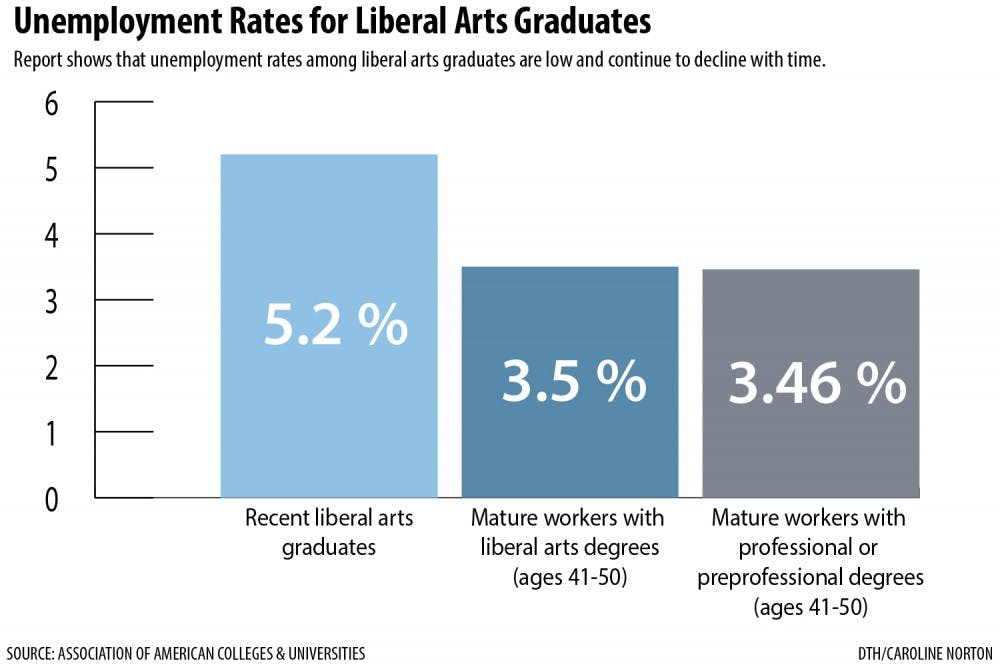Humanities majors may initially earn less money than STEM majors, but a new study shows they close the gap over time.
The report by the American Academy of Arts and Sciences — "The State of the Humanities 2018: Graduates in the Workforce & Beyond" — found humanities majors typically earn around $10,000 to $30,000 less than STEM and professional majors but still more than workers without a bachelor’s degree.
This gap has closed over time – advanced degree holders in the humanities earned 38 percent higher wages. Despite this, stereotypes about the lack of job opportunities and low wages still exist.
Matthew Hora, a professor in liberal arts and applied studies at the University of Wisconsin-Madison, said part of this perception about humanities majors is rooted in truth.
“It’s not much of a stereotype – it’s just a fact,” he said. “I think the part of the stereotype that’s unfortunate is this notion that if you get a degree in arts and humanities, you’re unemployable.”
This notion, Hora said, arose from the Great Recession during which many college graduates struggled to find work.
“You had a number of arts and humanities graduates that were underemployed, which means they were in jobs that don’t require a bachelor’s degree,” he said. “After the recession, underemployment was at a pretty high rate for all college graduates, but especially for humanities majors.”
Since then, unemployment in the humanities has been decreasing. From 2013 to 2015, the unemployment rate for college graduates ages 24 to 54 with a bachelor's in humanities went from around 5 percent down to 4 percent. Unemployment in individuals with advanced degrees in all fields decreased from 4 percent to 3 percent for ages 24 to 34, but stayed relatively stable for ages 35 to 54.
According to Hora, the key to being an employed humanities major is knowing how to market themselves, and universities have a responsibility to teach undergraduates how to properly present themselves to potential employers.




